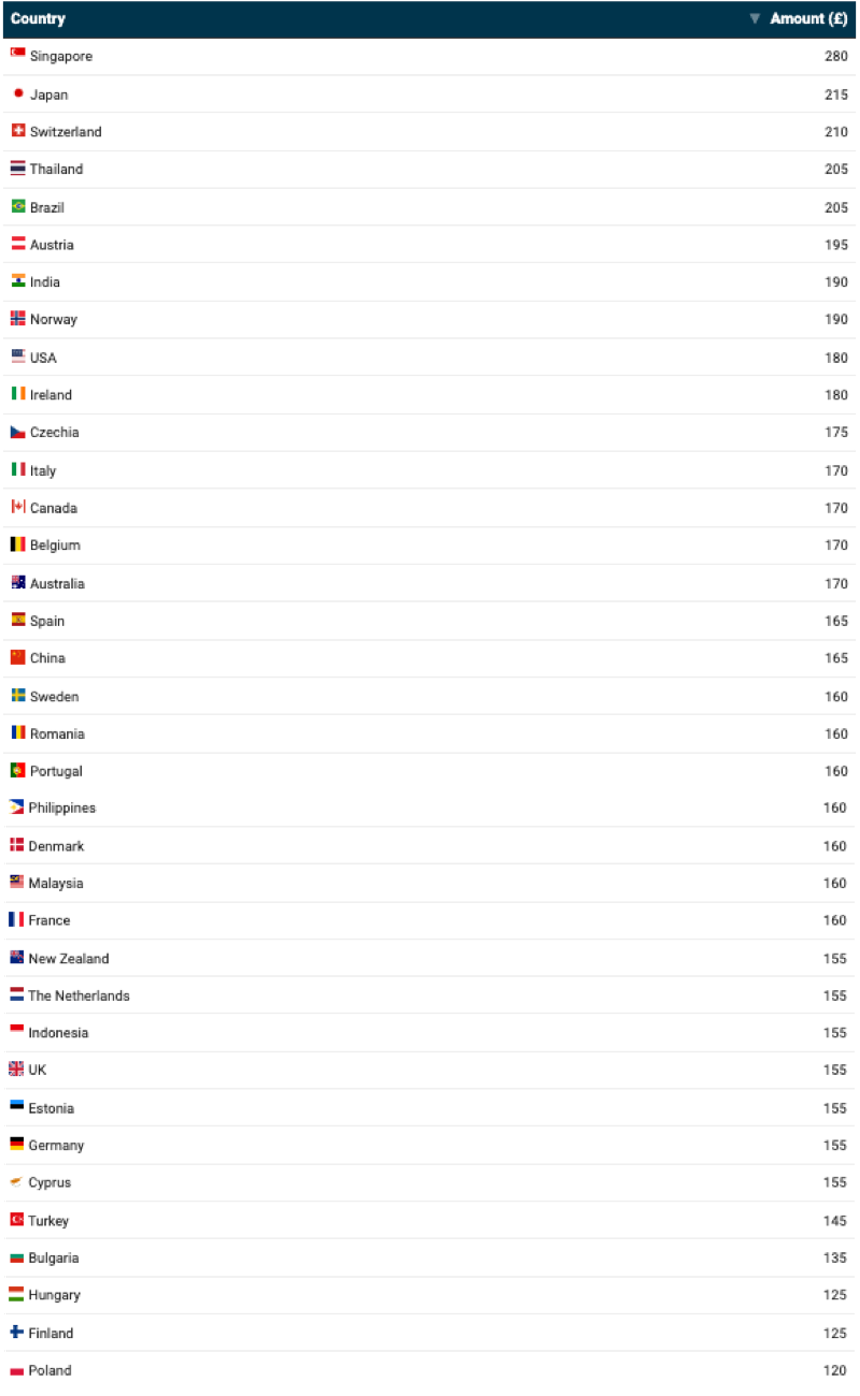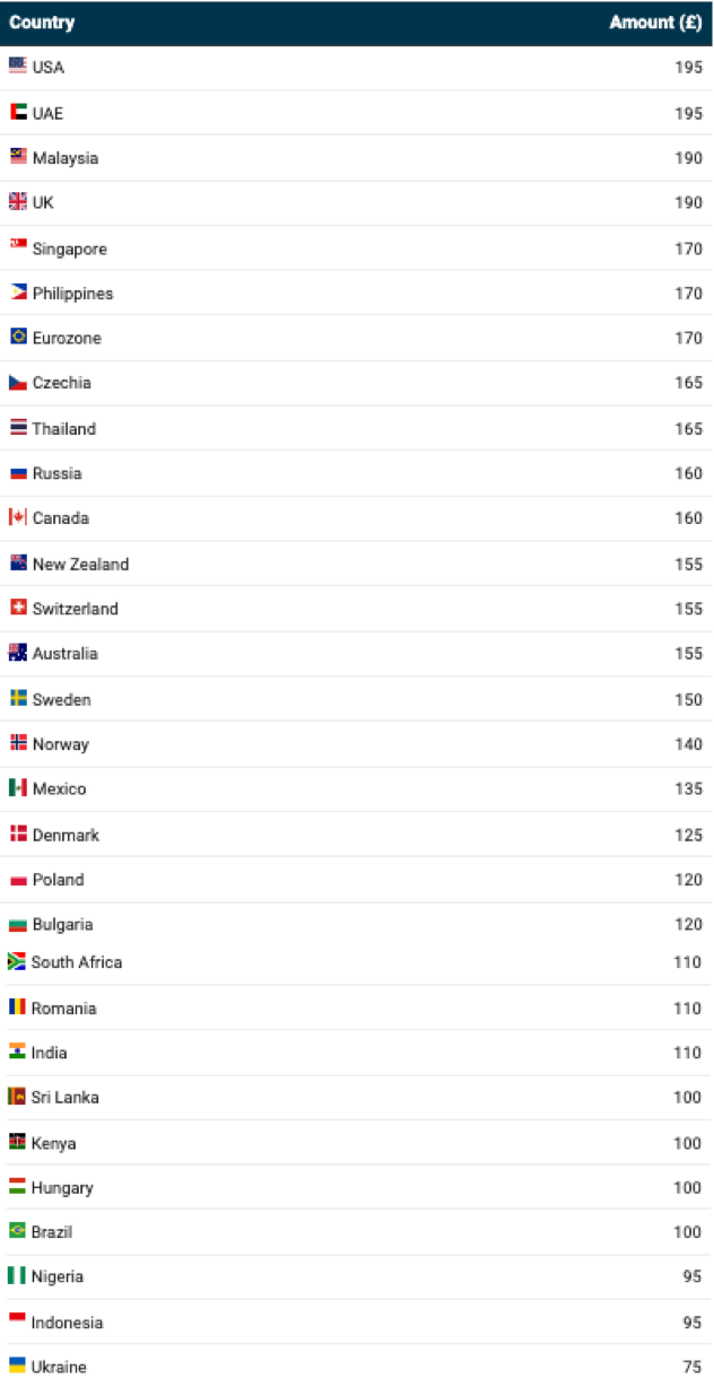2025 Update: Wise’s commitment to improving diversity, equity and inclusion for women in tech
At Wise, our vision is money without borders. In order to build the future of global money, we need a team that’s as diverse as the customers we...

Money is a popular gift among Brits at Christmas.
With many Brits unable to see friends or family living abroad due to the pandemic, giving money as a gift has been especially popular. Last year, 37% of Brits gave money as a gift to friends or family, making it the most popular gift for the 2020 Christmas season. The trend is set to continue this year, with a YouGov survey finding that over a quarter of Brits want cash or vouchers for Christmas.
This Christmas, Wise, the global technology company that provides multi-currency accounts and cheap international transfers, has investigated how much money families and friends (who often live in different countries) give each other for Christmas.* The analysis of over 100,000 Christmas transfers over a three year period revealed that globally, recipients can look forward to an average of £170.
Which countries are the top money senders?
From a comparison of 36 countries, Singapore is the most generous during the festive season: residents transfer an average of £280 to family and friends abroad. This is followed by Japan, with an average of £215 per Christmas transfer. Switzerland tops the European leaderboard, taking third place globally with £210 Thailand and Brazil complete the global top five at £205.
The UK scores lower on the Generosity Index
Despite money being such a popular gift among Brits, the UK scores only 28th out of 36 on the Christmas Index, with an average of £180 per transfer. Other countries lower down in the index are Finland and Hungary, whose Christmas transactions are slightly below the average, at £150. Poland scores lowest on the index, with £140 per transfer.

Which countries do Brits send the most money to?
Brits send the most generous gifts of money - £190 - to their friends and family across the pond in the USA, and to the UAE. Interestingly, money gifts sent domestically in the UK score highly in terms of generosity, with Brits gifting local friends and family a hefty £190, well above the average of £170.

Transfers can be expensive, especially to developing countries
Many people support their family and friends abroad with a gift of money at Christmas. However, this is often expensive: according to the World Bank, the average cost of a transfer abroad from the UK to countries with low or middle incomes is 6.44% of the transfer amount. This means that the price is well above the UN sustainability target (SDG 10c) of 3 percent, which the UK has also committed to meeting by 2030. The high costs are often masked by opaque pricing models and hidden markups on the exchange rate, meaning that senders often don’t know how much they’re losing out on”
Pedro Martin-Steenstrup, an analyst at Wise.
“Anyone who transfers money abroad - whether regularly or for occasions such as Christmas - should always take a look at the fees and the suggested exchange rate. These are often different from the mid market rate, which is the “official” exchange rate at which currencies are bought and sold. These markups mean that senders are overcharged, and recipients lose out on money that is often put towards crucial needs like health and education. Consumers should always compare prices and rates in advance and use exchange rate calculators* for this, to make sure you get a good deal, and that your present arrives as planned for Christmas.”
Methodology
Wise analysed 106,000 anonymised international transfers worldwide, sent in December 2020, 2019 and 2018 collectively. The transfers were classified as Christmas gifts using the subject “Merry Christmas” in the payment reference in numerous translations.
*Please see terms of use and product availability for your region or visit Wise fees and pricing for the most up to date pricing and fee information.
This publication is provided for general information purposes and does not constitute legal, tax or other professional advice from Wise Payments Limited or its subsidiaries and its affiliates, and it is not intended as a substitute for obtaining advice from a financial advisor or any other professional.
We make no representations, warranties or guarantees, whether expressed or implied, that the content in the publication is accurate, complete or up to date.

At Wise, our vision is money without borders. In order to build the future of global money, we need a team that’s as diverse as the customers we...

Paying someone new? Don’t waste time typing out their bank details or double-checking their IBAN. Upload a screenshot or invoice instead. Our new AI feature...

We're thrilled to introduce a powerful new feature designed to save you time and eliminate the frustration of manual data entry when sending money. Now,...

The new Wise Card is here! 🇧🇷

We have great news for our customers in Brazil! You can now set up your own Pix key directly in the Wise app

Welcome to the Wise Partner Program! In this guide, you will find all the information you need to get started, optimize and succeed as a Wise partner. Simply...